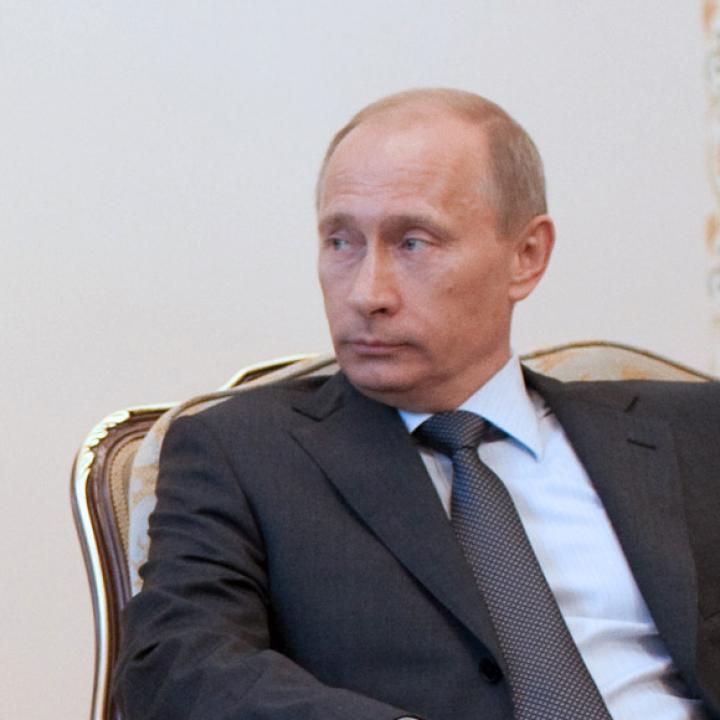
- Policy Analysis
- Articles & Op-Eds
Russia's Hacking Discussion Is Too Important for Partisanship

The argument that Russia's cyber-attacks are irrelevant because they didn't influence the election outcome, even if true, misses the point.
Because of Donald Trump's narrow victory over former Secretary of State Hillary Clinton -- a few tens of thousands of votes in key states could have handed victory to Clinton -- what should be a deliberate, non-partisan investigation into Moscow's cyber-attacks has become shrill and partisan. As Russian pro-democracy activist Gary Kasparov wrote earlier this month, "a divided America cannot defend the values of the free world." He is right.
The argument that Russia's cyber-attacks are irrelevant because they didn't influence the election outcome, even if true, misses the point. Rather, Moscow sought to undermine the integrity of the democratic political process, to sow confusion and doubt and to reduce the allure of US-style democracy. Putin would have achieved his desired goals no matter who won the US election.
In the run-up to the election, the Kremlin spun a message that the US elections are rigged. Margarita Simonyan, head of RT tweeted "Democracy, R.I.P." as voting began. Trump's victory contradicted and in some ways undermined that message. For all official Russian enthusiasm over Trump's victory, it appeared the Kremlin did not expect it.
It is important to understand Putin's cyber-attacks as part of Russia's effort to undermine support for democracy and US interests. Some may dismiss the Kremlin's information warfare component as ineffective, but that would be a dangerous misread.
A recent RAND report on the Russian propaganda model concludes that Russian disinformation efforts work even though they contradict "conventional" models of successful communication that usually emphasize "the importance of truth, credibility, and the avoidance of contradiction." Among top reasons why the Russian strategy works is that it has a monopoly on first impressions. It is not concerned with the truth, rather being the first one to respond. First impressions, according to psychologists, are highly resilient. This situation puts accurate news sources on the defensive.
People also tend to believe something when they hear it repeatedly and from multiple sources. Russian propaganda efforts go beyond RT and Sputnik and instead are part of package of a whole host of other, less obvious sources. Psychologically, "repetition leads to familiarity, and familiarity leads to acceptance," according to the report. Kremlin-sponsored sources crowd out more and more other sources in a fight for information space.
Lies don't need to last to do lasting damage. Lies as a legitimate weapon also echo centuries of Russian history, what Russian political scientist Vladimir Pastukhov describes as "a kind of Scythian steppe tradition of the struggle with civilization."
It may be difficult for a Western mind to understand, but Putin genuinely believes the West orchestrates regime change, from the post-Soviet space to the Middle East, and that he was next on the US list. He cannot even conceive of a possibility that Russian citizens came out to protest on their own in late 2011-early 2012, in what were the largest anti-government protests since the fall of the Soviet Union. He blamed Hilary Clinton, who "gave a signal" for protestors to come out. Putin sees himself as under attack from the West. From his perspective, the hacking really was a defensive act.
It is also hard for a Western mind to understand that the line between domestic and foreign policy in Russia is often blurred to a degree that would be impossible in the West. Since the time of the czars the Kremlin historically gets more aggressive abroad when things are bad at home. It looks for ways to distract the public with "short victorious wars." This is why Putin needs America to be the enemy no matter who is president, and why any reset efforts are bound to fail.
It is unfortunate that it took us so long to discuss the issue of Russia's cyber-attacks. House Permanent Select Committee on Intelligence Chairman Devin Nunes said in a statement on January 6, "The House Intelligence Committee has been warning the Obama administration for years about the need for stronger measures against Russia to counter these kinds of attacks, but our warnings largely fell on deaf ears."
Yes, Putin's Russia is not the only country that uses cyber-attacks against the United States, and the conversation should include other countries, such as China. But this should not deflect from the significance of the Kremlin's actions. Indeed, other dictators are watching -- and learning.
Anna Borshchevskaya is the Ira Weiner Fellow at The Washington Institute.
Forbes


